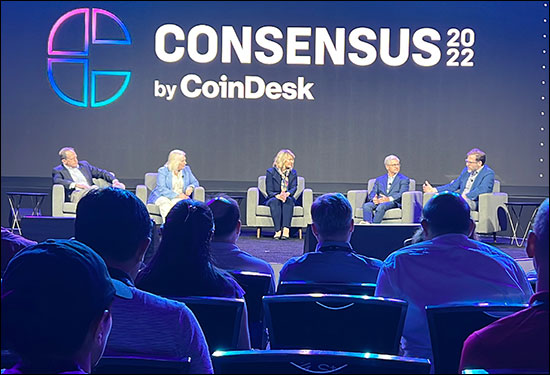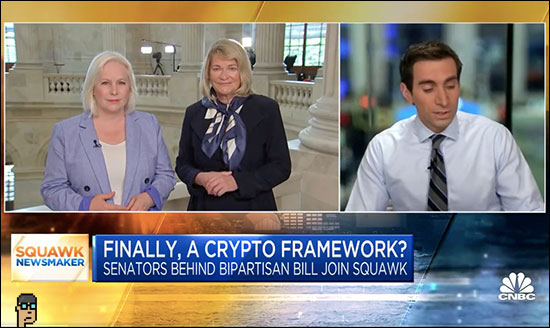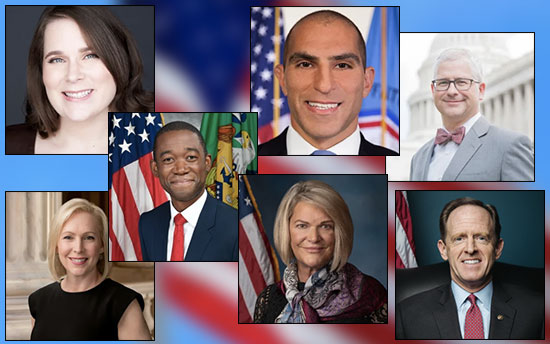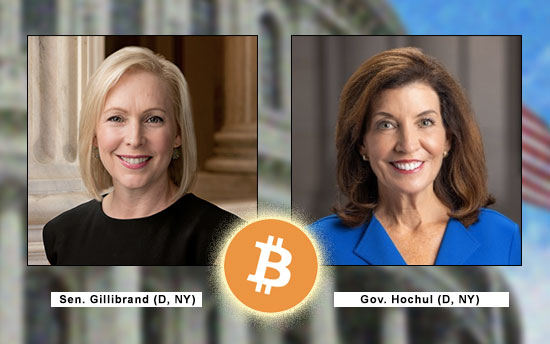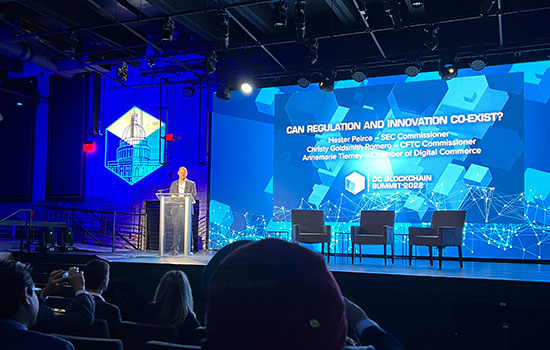There may have never been a bigger moment in the confluence of blockchain technology and U.S. federal government policymaking as Congress came to the crypto throngs last Friday for a “Town Hall” at Consensus 2022 in Austin, Texas.
Seated from left to right were Senators Pat Toomey (R, PA), Kirsten Gillibrand (D, NY), Cynthia Lummis (R, WY) and Congressman Patrick McHenry (R, NYC) who acted as a team and appeared to be keenly interested in creating a relationship with the thousands in attendance. CoinDesk’s Jesse Hamilton moderated.
The new Lummis/Gillibrand “Responsible Financial Innovation Act” was the calling card in Austin, and clearly the Congressional members knew that a key constituency for helping create, refine and pass effective blockchain-related legislation in the years to come was seated before them. The congressional leaders also seemed to understand the audience’s skepticism about Congress and its ability to pass any helpful legislation quickly.
Senator Toomey, whose term ends this coming January, didn’t hesitate to stoke the fires of expediency at the outset by suggesting that stablecoin legislation – such as his – could be passed this year.
Concurring with the senator from Pennsylvania, Congressman McHenry said (lightly edited for clarity):
“The reason why we will be able to move on stablecoins is because there’s alignment around the essentials of asset-backed stablecoins. Algos (algorithmic stablecoins) are a different deal. But, asset-backed stablecoins – that regime is a very reasonable one for us to come to terms with (…). We’re about 50% aligned on the most extreme pieces of legislation here. And that’s pretty darn good for Washington. So then we can get into the finer points of some questions like: ‘Who’s the regulator?’ which are more preference issues than ideologies driving those conversations, but the need is there. And there is a understanding among Republicans and Democrats in the House and Senate on the basic things we need to do on stablecoins. We have to [build definitions on stablecoins and address] definitional issues around digital assets and the regulatory framework of the exchanges that they are on.”
McHenry added that the new Lummis/Gillibrand bill had moved the conversation forward.
Continue reading “Congress Reaches Out To Crypto Throngs at Consensus 2022”

